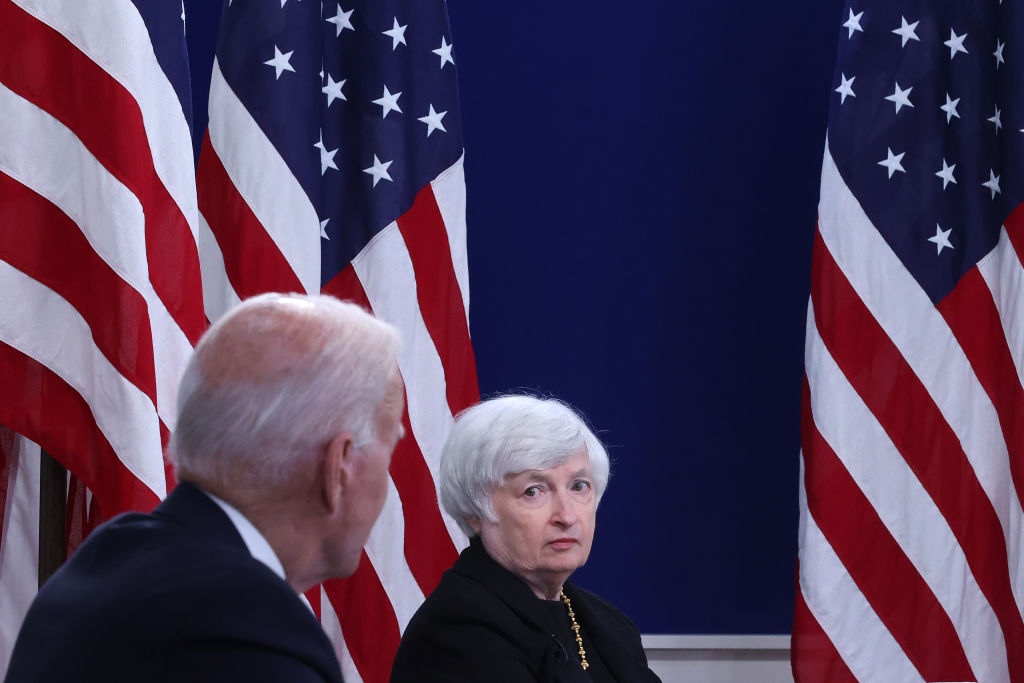The worst-kept secret in Washington today is that the US administration is afraid of China. Beijing has been able to get away with so much under President Joe Biden, from spy balloons traveling across the United States to accelerating the de-dollarization campaign. The latest example is Treasury Secretary Janet Yellen talking softly and carrying a speech at the Johns Hopkins University’s School of Advanced International Studies on April 20. Did Yellen accomplish anything, or was it another instance of empty rhetoric that will be roasted by the flames of the red dragon?
Competition and Diplomacy
The US government desires economic competition with China while also pursuing what is best for the United States, according to prepared remarks from Yellen. In her latest speech, the former head of the Federal Reserve emphasized how critical it is that the US and China adopt a multi-layered strategy to bolster its $700 billion trade relationship.
Despite officials wanting to strengthen ties with President Xi Jinping, Yellen lamented that the world’s second-largest economy has shifted away from a market-based approach to economic affairs “toward a more state-driven approach that has undercut its neighbors and countries across the world.” The only way the two nations can compete is by installing an unbiased rulemaking framework.
“This has come as China is striking a more confrontational posture toward the United States and our allies and partners – not only in the Indo-Pacific but also in Europe and other regions,” Janet Yellen said. “There is a world in which, as companies in the US and China challenge each other, our economies can grow, standards of living can rise, and new innovations can bear fruit.”
But she warned that this type of relationship is only “sustainable” if it is just and equitable toward both states. Yellen accentuated the importance of improving relations since America trades more with China than any other country, except for its neighbors Canada and Mexico. The Treasury chief identified the various components of bilateral trade, such as US companies maintaining an extensive presence in China and a large number of Chinese businesses listed on US stock exchanges. At the same time, according to Yellen, China has sought to obtain greater market share levels “through IP [intellectual property] theft and other illicit means.”

(Photo by Chip Somodevilla/Getty Images)
“We will clearly communicate to [China] our concerns about its behavior. And we will not hesitate to defend our vital interests,” Yellen stated. “Even as our targeted actions may have economic impacts, they are motivated solely by our concerns about our security and values. Our goal is not to use these tools to gain competitive economic advantage.”
Although Yellen extended an olive branch of goodwill, she also promised to work with US allies to combat Beijing’s “unfair economic practices” and champion a US-led vision of an economic order based on openness, equity, and rules. Still, she urged the Chinese Communist Party to cooperate in worldwide challenges, like soaring global debt and climate change.
Decoupling Time?
Is a US economy decoupling from China “almost inevitable”? China Beige Book International Managing Director Shehzad Qazi thinks so, telling Yahoo Finance that recent moves by the United States point to some level of decoupling. And he might be right as a DHL trade data tracker point to a “general pattern” of decoupling. But while all eyes are on what America is doing, what about Beijing? The Chinese government is embracing a more regional economic approach, Beijing has trimmed its holdings of US Treasury securities by more than 15% over the past year, and China is leading the anti-dollar crusade.
Janet Yellen thinks decoupling would be “disastrous” and potentially destabilize the world. But disastrous and destabilizing for whom? Over the next decade, with all the economic maneuvers and geopolitical measures Xi has employed in the last 12 months, the US might need China a lot more than China needs the US.
All opinions expressed are those of the author and do not necessarily represent those of Liberty Nation.
Do you have an opinion about this article? We’d love to hear it! If you send your comments to [email protected], we might even publish your edited remarks in our new feature, LN Readers Speak Out. Remember to include the title of the article along with your name, city, and state.
Please respect our republishing guidelines. Republication permission does not equal site endorsement. Click here

